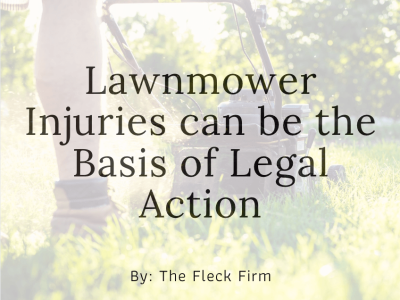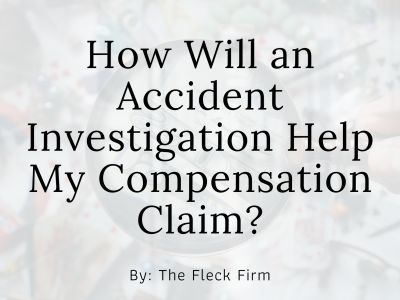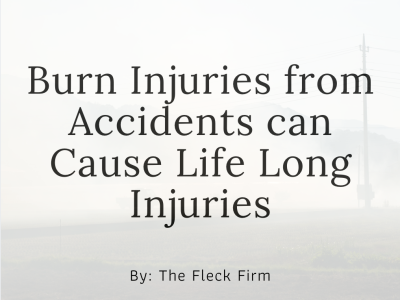When grass needs to be cut, we use mowers without much thought. We pull the starter rope and start walking or turn the key and ride off into the green sunset. But these are potentially hazardous machines.
They can have powerful gas engines and long spinning blades, and many of us sit on mowers that can reach respectable speeds. It shouldn’t surprise us that mowers injure many Americans. Depending on the circumstances, compensation for injuries could be available through an insurance claim or lawsuit.
How Dangerous are Lawnmowers?
Johns Hopkins Medicine published research in 2018 that estimates the following:
- There are about 6,400 mower-related injuries in the US annually
- Most require surgery and hospitalization
- The treatment costs (between 2006 and 2013) averaged $37,000 per patient
- Men were more likely to be injured (85.2% of reported injuries)
- Children up to age four were six times more likely to have an injured toe, foot, or lower extremity and 1.7 times more likely to suffer an amputation than those 15 and older
- Those 15 and older were 8.3 times more likely to have their hand or upper extremity injured
Researchers state these statistics show:
- Younger children are more likely to be injured by running to the mower, the mower coming toward them, or the child riding on the operator’s lap and a foot becoming caught under the machine
- The injuries to those who are older are likely caused when a user tries to clear debris from the machine either while it’s still running or the blade is still spinning
Researchers identified 14,878 lawnmower-related hospital visits over the period 2006 to 2013. They state there were 51,151 injuries and about 6,394 cases each year on average. The data used was from the United States Nationwide Emergency Department Sample, the largest emergency department (ED) database in the US, which captures about 25 to 30 million ED visits annually or about 20% of the total.
The most common injuries were the following:
- Lacerations – 46.7%
- Fractures – 22.4%
- Amputations – 21.5%
The most common areas injured were the following:
- Wrist or hand – 65.4%
- Foor or toe – 19.8%
Most of the injuries happened on a weekday (66.3%), so many may have been to people hired to mow lawns. Most (81.7%) also happened between April and September. The average per-patient ED visit cost was $2,482, and inpatient treatment costs averaged $36,987.
Other attorneys take contingent fees of 33% to 50% of your settlement.
We want you to keep more of your money.
Our contingent fee is only 30% on cases settled prior to filing suit.
How Might an Injury Claim be Based on a Lawnmower Accident?
They may arise from negligence claims or allegations that the mower is dangerously defective and unsafe for its intended use (product liability), or both claims may apply depending on the facts.
Negligence
This is the legal basis for most personal injury claims. To win your negligence case, you must prove the following:
- The defendant (the party sued) owed the plaintiff (you) a legal duty or obligation (to do or not do something given the circumstances)
- The defendant breached that duty or failed that obligation
- That failure or breach is legal (or proximate) and factual cause of your accident and injuries
- Kentucky law requires the defendant to pay the plaintiff damages (a measure of the harm in dollars) as a result
If your neighbor negligently uses or repairs their mower and you’re hurt, your neighbor could be the defendant. If the person you hire to repair or maintain the lower doesn’t do the job properly, or the manufacturer negligently makes the mower dangerous, they may be defendants.
Product Liability
Product liability allows legal action against a designer, manufacturer, distributor, or seller of defective products that cause injuries to a buyer or user. You wouldn’t need to prove negligence. Only that the lawnmower is defective, which caused the accident and injury. The product may have a flawed design, was poorly manufactured, or you weren’t given proper warnings or directions on using the mower safely.
A common defense in these cases is the injured plaintiff didn’t use the mower properly or ignored directions or warnings. You may not have a case if you don’t use it reasonably and as intended by:
- Filling it with gas while the engine is hot or running
- Mowing high brush instead of grass
- Going over rocks or large twigs
If it directly causes injuries or damages the mower to the point it’s dangerous, this misuse may make your claim not worth pursuing. Ideally, you’ll have “clean hands” and won’t be negligent or contribute to your injuries. Making these mistakes may not end your case, but it would reduce your compensation.
Did a Lawnmower Seriously Injure You? If So, We Can Help
If a lawnmower severely injures you and want to learn about your legal rights, call The Fleck Firm at (270) 446-7000 to schedule a free consultation. We’ll discuss what happened, how Kentucky law may apply, and your best options to proceed. Insurance companies have lawyers. You should have one, too.








